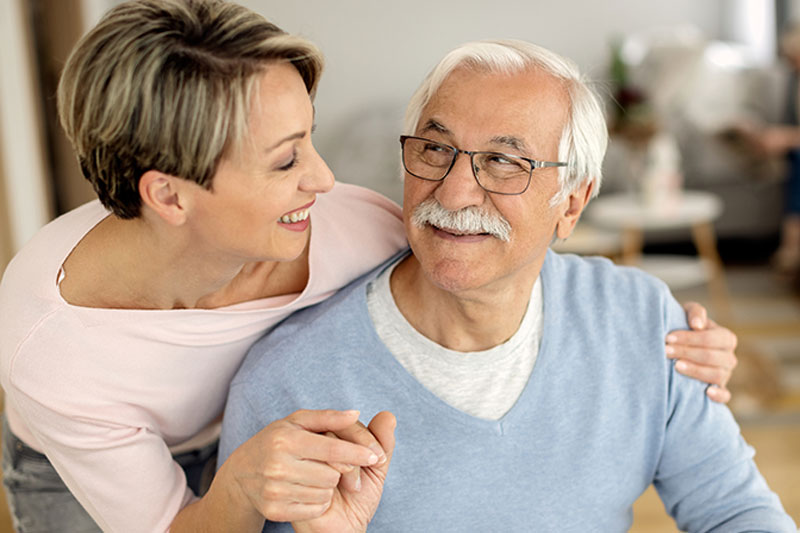
Care needs for Parkinson’s disease change as each stage progresses.
A Parkinson’s disease diagnosis affects loved ones as well as the person diagnosed. Understanding what to expect as the illness advances is vital to being prepared for the changes in the future and to making the most of every day.
Over the course of our three-part series, we will be posting information about what to expect in each phase of Parkinson’s disease. Blogs will cover what family care providers can do to best assist a senior loved one with Parkinson’s and how Absolute Companion Care, a provider of senior care in Sparks, MD and nearby areas, can assist. Read part 1 and part 3 of our series.
Middle Stage Parkinson’s
As Parkinson’s progresses into the middle phase, one of the top fears is losing balance, and fall prevention will become very important. Remember, however, that throughout the middle phase of the illness, the person with Parkinson’s often will still be able to fully participate in daily activities like getting dressed, tending to personal hygiene, and eating. It is important to permit added time for the person to do these activities, however, as you start to observe a noticeable slowing in self-care abilities.
Other changes to anticipate in this stage include:
- Increased stiffness, rigidity, and tremors
- Increased tiredness
- Changes to sleep patterns along with other sleeping issues
- Constipation
- Communication problems, including slurring words and a lower and more hoarse tone of voice
The Impact of Middle Stage Parkinson’s on Family Caregivers
While the impact on care tasks has perhaps been very little up to this time, care needs begin to intensify in the middle stage of Parkinson’s. To further heighten the challenges, difficulty with communication may cause aggravation for both the person with Parkinson’s and family care providers.
It is common for caregivers to face increased worry, anxiety, and stress at this time in the disease. There may be concern over the best way to meet the steadily increasing needs of the person they love. These feelings may be amplified by insufficient sleep and/or other important facets of sustaining a healthy lifestyle. As is the case throughout the progression of Parkinson’s, it is vitally important for family caregivers to prioritize taking care of themselves.
How Care Providers Can Help with Middle Stage Parkinson’s Care
One easy way to help in this phase is to implement adjustments to the home setting to ensure both safety and ongoing independence. Even the most basic changes can make an impact. For example, try:
- Getting rid of throw rugs, clutter, extension cords, and anything else that may pose a tripping danger
- Installing handrails and grab bars in the bathroom
- Buying clothing and shoes that are more convenient for self-dressing, such as shoes with Velcro as opposed to laces, pull-on trousers, shirts with snaps rather than buttons, etc.
- Replacing the person’s manual toothbrush and razor with electric versions
- Exploring adaptive tools like knives that work with a rocking motion, utensils with larger, easier-to-grip handles, levered door handles to replace knobs, etc.
Absolute Companion Care’s award-winning senior care professionals are here to work with you through every stage of Parkinson’s. We can help you create a practical plan of care that will guarantee all needs are met now, and as they change in the future.
It’s important to understand that providing care should never be a solo effort. Call us at 410-357-9640 for a free in-home consultation for more information on our in-home care services and how we can ease the changes through Parkinson’s both for you and the senior you love.
